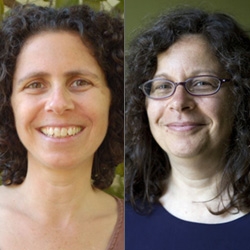

NVC Resources on Listening
-
Creating teaching exercises builds consciousness and helps develop your unique teaching style.
-
Breaking workshop planning into bite-size steps reduces overwhelm and sparks creativity.
-
Leading an Nonviolent Communication workshop is a good way to learn and practice NVC skills. Here are Shantigrabha and Gesine's seven top tips for facilitators.
-
Empathy guessing when I was new to NVC seemed magical and mysterious. How could that other person have known that about me? And seen inside me — often in ways I'd missed myself. While empathy is both intuitive and an art, there is also a science to it. In this brief yet fascinating introduction to Dian's course, Empathy Hacking, you'll learn a super-practical way to demystify empathy guessing by making use of the root meaning of words.
-
Here's a quick tip to improve your empathy skills with empathy guessing.
-
Conversation can become more satisfying with depth. Depth is occurs when connection unfolds towards a depth of intimacy, presence, attunement, sensing -- and silent attentive connection where another is attentively seen and heard. Inviting this level of sharing in conversation relies on at least three major elements: attentive silence, the desire to connect and be known, and focus on present moment experience. Learn more about this way of engaging.
-
To tell the difference between empathy and investigation, watch for distinctions along four different dimensions: energy, subject, intention and trust. These distinctions can help us engage awareness and skill to meet your needs and respond to others’ needs in more direct ways. The more you meet your needs in conscious and direct ways, the more present you can be for others. Read on for more about how to do this.
-
Ingrid shares about the three primary keys of parenting & NVC, two child rearing models, developmental needs for children and how to foster secure attachment.
-
Why is it so difficult to change our patterns even when we want to, even when we experience shame or despair about them? Arnina Kashtan offers some of the common pitfalls and concrete steps to overcome them in the future.
-
Try this four step exercise for making connection requests to support understanding, and to learn what effect your words had on the listener. In this exercise you'll choose a situation where you have clarity about what outcome will really work for you (your solution request), but where you imagine your desired outcome may not work for the other person, and/or are not sure there is sufficient connection for mutual trust.

Quick Links
Subscription Preferences
Stay In Touch!
Looking for ways to keep up with NVC Academy news, get special offers, free resources, or words of inspiration? Here are five ways to stay engaged:










